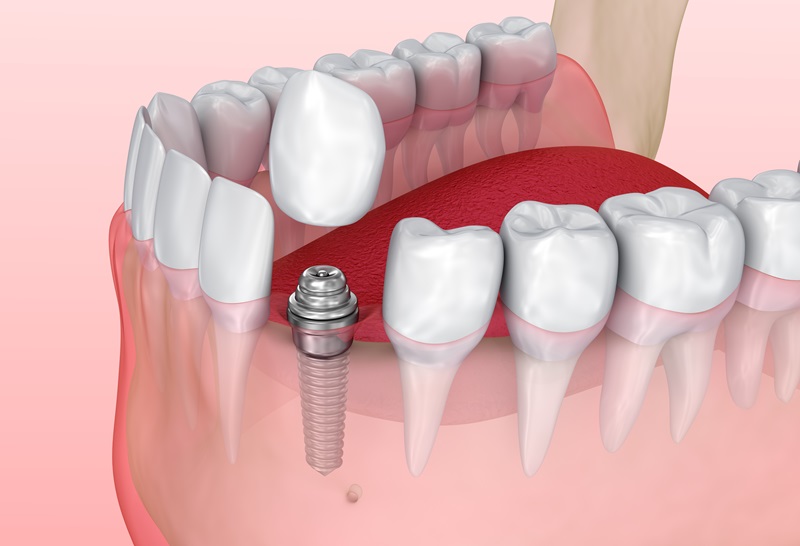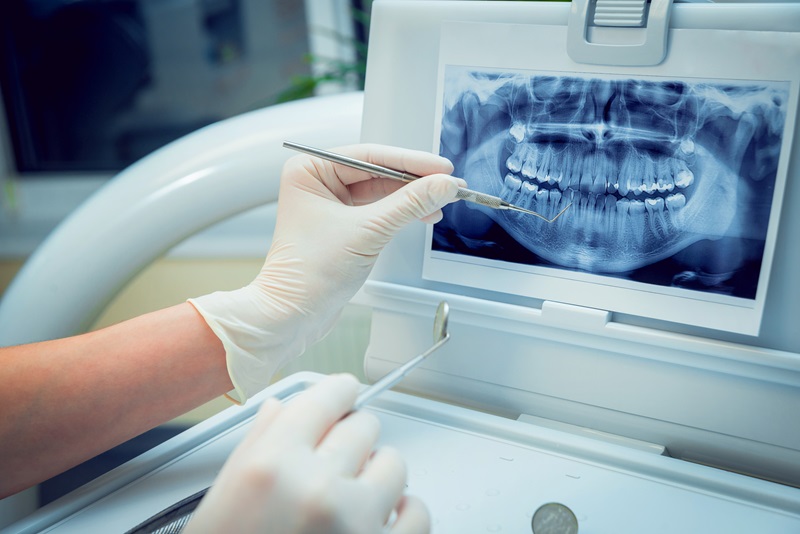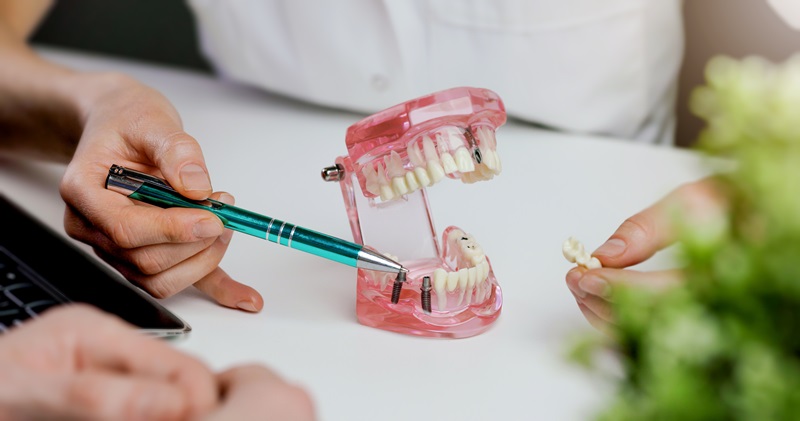Is There a Lifespan for Implants? 5 Secrets to Make Your Implants Last Longer
For those who have undergone implant treatment or are considering it, you might wonder, “Do dental implants have a lifespan?”
In this article, we will provide detailed information about the lifespan of implants and key points to ensure they last a long time after the treatment.
What is a Dental Implant?

A dental implant is a treatment method where an artificial tooth root (implant) is embedded in the area where a tooth has been lost for some reason, and an artificial tooth (superstructure) is attached on top of it.
The greatest feature of implant treatment is that by embedding a biocompatible artificial tooth root made of titanium or zirconia into the jawbone, you can chew just as firmly as with your natural teeth.
Additionally, implants do not require the surrounding teeth to be shaved down, offering a natural appearance and excellent aesthetics.
How long do dental implants last?
The lifespan of a dental implant can vary depending on the location where it was placed, the conditions at the time of placement, and the type of implant manufacturer. On average, dental implants are said to last about 10 to 15 years.
To ensure the durability of your dental implants, regular maintenance and periodic check-ups at the dental clinic are crucial. There have been reports that more than 70% of dental implants last over 20 years.
While the initial cost of dental implants is higher compared to other treatments, considering that the average lifespan of a bridge is 7-8 years and dentures are 4-5 years, dental implants offer excellent cost performance.
Causes of Dental Implant Problems

Cheap Implants
Choosing a low-cost implant option simply because it is inexpensive might mean using implants that lack safety assurances or are placed by practitioners with insufficient experience and knowledge.
In such cases, there is a possibility that problems with the implant could arise shortly after the treatment is completed.
Bacterial Infection
Although implants are artificial, they can still be susceptible to bacterial infections similar to natural teeth. This is known as peri-implantitis.
It can occur due to inadequate daily care or if the patient is naturally prone to periodontal disease, leading to the potential failure of the implant.
Excessive Load
Continuous excessive load on the implant caused by habits like teeth grinding (bruxism) or clenching can lead to implant problems.
Correcting daytime clenching habits and using a mouthguard at night to prevent grinding and clenching are recommended measures to reduce this risk.
Five Key Points to Make Dental Implants Last Longer

1. Get the Procedure Done at a Trustworthy Dental Clinic
The success of dental implant surgery greatly depends on the skill of the dentist, so it’s crucial to choose a reliable dental clinic.
Additionally, the safety of the implant brand used is an important factor.
Our clinic uses Straumann implants, which hold a top share in the global market. With experienced oral surgeons handling your treatment, you can trust that you are in good hands.
2. Maintain Proper Oral Hygiene
While implants themselves cannot get cavities, the surrounding tissues can become infected.
Regular brushing and keeping the mouth clean are essential to prevent infections.
3. Regular Maintenance at the Dental Clinic
Regular check-ups and maintenance at the dental clinic are vital for the long-term success of your implants.
During these visits, we check for infections around the implant and ensure that there is no excessive load on the implant, preventing major problems from occurring.
4. Prevent Excessive Load on the Implants
Teeth grinding and clenching can place excessive load on implants, leading to issues.
For those who grind or clench their teeth heavily, wearing a mouthguard while sleeping can protect both implants and natural teeth.
Additionally, injecting Botox into the chewing muscles can also be an effective solution.
5. Reevaluate Smoking Habits
Smoking can impair blood flow, making the surrounding tissue more susceptible to peri-implantitis. Quitting smoking is the best way to ensure the durability of your implants.
Treatment Options When Dental Implants Encounter Problems

Generally, the lifespan of a dental implant refers to the scenario where the implant comes out from the root. In this case, a re-surgery is necessary.
If only the superstructure of the implant chips or falls off, the issue can often be resolved by replacing just the superstructure without the need for surgery.
If you encounter any issues with your dental implant, we recommend visiting a dental clinic as soon as possible.
At our clinic, it is a condition of our warranty that you attend maintenance check-ups every six months. The implant itself is guaranteed for 5 years, and the superstructure is guaranteed for 3 to 5 years depending on the treatment plan.
Summary on the Lifespan of Dental Implants
- The typical lifespan of an implant is around 10 to 15 years.
- Compared to other treatment methods, implants have a longer lifespan and offer high cost-performance.
- Common causes of implant problems include bacterial infection and excessive load.
- Preventing implant issues relies heavily on good self-care practices.
- Regular maintenance at a dental clinic is crucial to prevent implant problems.
- Dental Implants often come with a warranty period.
- If issues arise with an implant, it's important to visit the dentist promptly.
Please Feel Free to Consult Us about Implant Treatments

At White White Dental Clinic, we offer safe and secure implant treatments performed by surgical specialists.
Additionally, we strive for beautifully natural implant results, leveraging our extensive experience in aesthetic dentistry.
For those coming from abroad, please start with a consultation through our online Zoom consultations.
Copyright© whitewhite All Rights Reserved.